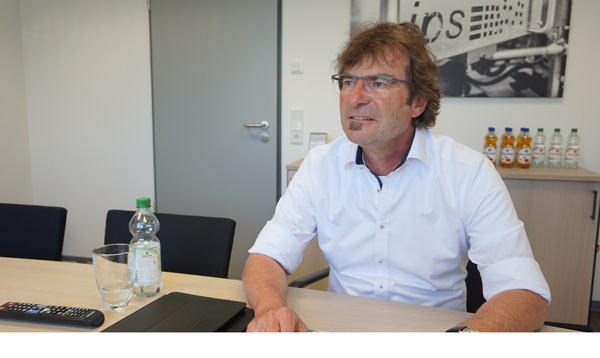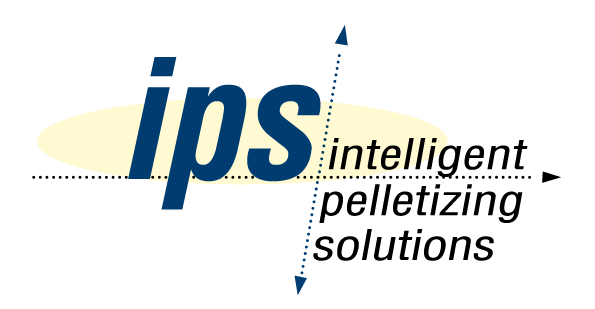»You just have to listen«
ips Intelligent Pelletizing Solutions GmbH & Co. KG regards itself as the consistent further development of a manufactory. Just why this is so, and how it is implemented in the company, was explained by Managing Director Gerald Weis in an interview with K-ZEITUNG.
Founded in 1998, ips Intelligent Pelletizing Solutions GmbH & Co. KG has always been an innovation leader and a reliable supplier for all products in the area of pelletizing. Around the world, over 1,000 machines from the owner-run family company have already been commissioned. A well-balanced product portfolio, proven standard machines and special solutions tailored specifically to customer needs secure a favourable market position and guarantee the customer stable production processes. In an exclusive interview with K-ZEITUNG, Managing Director Gerald Weis speaks about how his company came into being, what characterises it today, and the aims he pursues.

Mr. Weis, you can now look back on over three decades of professional experience in your branch. What was it that swayed you 20 years ago to found a company yourself?
Gerald Weis: Yes, I have been in what we could affectionately refer to as the “pellet business” for over 30 years now. I studied Plastics Engineering at what is now the University of Applied Sciences in Darmstadt and did my diploma thesis on one of today’s competitors. There I worked both on the development of compounding machines and later in the pelletizing department. After a stint as operations manager in a plastics processing company where I got to know the business from the other perspective, my path led me back to my original employer. This is where, ultimately, the idea for ips was born.
You’ll have to explain that to us in more detail.
Gerald Weis: What started life in 1998 as a “three-man operation” is today – with an SME character – the only owner-run family company in our branch. ips came about because we believed that we were capable of meeting some of our customers’ requirements in a different, better or more elegant way, but also because we perceived a vacuum in the areas compounding, masterbatches and the recycling industry. There was a market niche and room for a further supplier who would simply serve small and medium-sized company in the branch better and more economically. And that, ultimately, was the birth hour of ips Intelligent Pelletizing Solutions GmbH & Co. KG.
Our main area of activity is pelletizing technology – both in the area of strand pelletizing systems and in the underwater pelletizing sector. In this, we are clearly focussed on the compounding, masterbatch and recycling industries, but also, today, on the polymer industry. And the long-standing involvement of a private investor gives us additional financial latitude to consistently pursue a growth course.
Where do you see the benefits of your products over those of your competitors?
Gerald Weis: Conventional strand pelletizing has been around for over half a century. In terms of the technical benefits, we would really have to go into detail. That would undoubtedly go beyond the scope of our discussion here. The special benefit for our customers lies primarily in the intelligent solutions which also find expression in our company name. 99 % of these intelligent solutions, or perhaps the ideas behind them, come from our customers themselves. From the very users who work with our products in their daily practice. You just have to listen closely to them and transform their wishes or requirements into technical solutions. And with these technical solutions, a strand pelletizer from ips is much easier to operate, to clean or simply to maintain in many areas.
Coupled with our pronounced requirements orientation and a comprehensive service, we are today a valued partner for plastics producing companies at international level. Thanks to our streamlined company structure, we are personally available for the concerns of our customers – with no run-around - take decisions quickly and implement them directly, whether you require a new pelletizing system, your equipment has to be serviced, you urgently need a replacement part, or would just like some advice. All these are important benefits, greatly appreciated by our customers.
As already mentioned, you are celebrating your company’s 20th jubilee this year. With regard to the future, can you give us any indication of what lies ahead?
Gerald Weis: Back in 2012, when we decided to build today’s facility on a green field site in Niedernberg, near Aschaffenburg, we set ourselves very clear turnover and productivity targets which we are almost already meeting today. A further major aim is to be and remain an owner-run company. The succeeding generation is already in the starting blocks, ready to guide ips successfully and steadily into the future. Midway through the past year, my younger son assumed the position of the company’s Product Manager for Underwater Pelletizing Systems. As of the beginning of July of this year, in his role as Project Engineering Manager, my older son has been primarily looking after communication between internal processes and our customers.
However, our intention is not just to establish a broader footing in terms of personnel, but also, and indeed above all, technically and on the product side. That means that, in addition to the pelletizing systems which we consistently develop further for our customers, we have launched a ZIM project (central SME innovation programme) together with Cetex, the Institute for Textile and Processing Machines at Chemnitz University of Technology. The project involves the development of a complete system for producing long-fibre-reinforced thermoplastics (LFT). The first steps have already been taken. The project shows that ips is innovatively and boldly treading new paths and is advancing further, ultimately, of course, with the aim of opening up new business fields.
Why have you chosen LFT technology, specifically, as a further business field?
Gerald Weis: That’s easily explained: In the production of long-fibre-reinforced thermoplastics, strand pelletizers are always used for cutting the impregnated fibre strands into long pellets. Recently, we have observed increased demand for these pelletizers in the market. With regard to a complete LFT system, we already have most of the components in our product portfolio which, either directly or in modified form, can be used for LFT plants – with the exception of the extruder. For the fibre handling itself, we have found in Cetex an extremely competent partner who has agreed to join us on this chosen path. Following extensive market research, we have decided to develop an LFT system. Along with Cetex, we began work on the conception this year, and plan to be able to offer a market-ready system by 2020 at the latest.
Mr. Weis, thank you very much for the interview.


